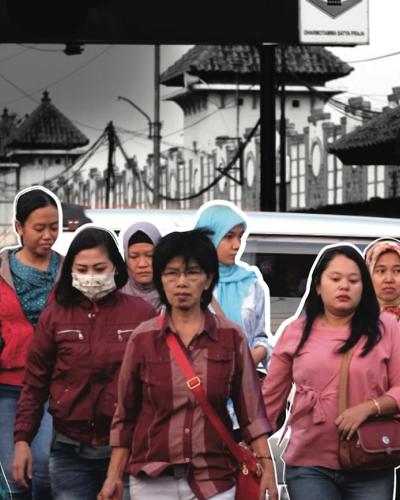After Dark: Encouraging Safe Transit for Women Travelling at Night

Pulse Lab Jakarta teamed up with UN Women to conduct research on how women navigate public transportation in the evening. Aptly called “After Dark”, the overarching goal of the research was to understand the mobility patterns and perceptions of safety among women workers who regularly travel at night.
City governments nowadays are adopting sophisticated technologies and near realtime data to improve planning and service delivery to enhance citizens’ quality of life. Known as the smart city approach, the aspect of the discourse regarding women has focused on improving mobility. However, in order to be able to navigate through these fast-advancing, urban cities, women sometimes have to develop their own safety mechanisms because smart cities do not always mean safe cities.
This research focused specifically on the experiences of women who are employed as shop attendants, cashiers, restaurant servers and who work in other small business enterprises. The research was conducted in the Indonesian cities of Jakarta, Medan, Semarang, and Surabaya.
Thirty-seven women respondents participated in the research. These women recorded their travel experience over four days in a diary, which served as a springboard for Pulse Lab Jakarta to conduct 33 additional in-depth interviews. As part of the research, several of the respondents were shadowed on their journey home at night, which provided researchers with an actual, real-life context to help synthesise information and analyse findings.
The research revealed that respondents’ perceptions of safety exist on a spectrum—it is not simply a dichotomy of being safe or unsafe. While their overall nighttime travel experiences are influenced by a range of factors, the most salient considerations include quality of public infrastructure, efficiency of transportation services, and women’s own sense of familiarity with their surroundings. Instead of limiting their mobility due to security concerns women try to find ways to continue traveling, such as building their own protection mechanisms. These mechanisms help them to reduce their dependence on friends, family, fellow passengers, and onlookers when travelling at night.
The main challenge that emerged from the discussions with women was two-fold: how can the burden that is placed on women to maintain their safety be reduced and what steps can be taken to build safer and more inclusive cities.
Five opportunities for intervention were identified:
- Repositioning Organda (a land transportation organisation that was established by a Ministerial Decree in 1963) to lead the angkot reformation by implementing and monitoring vehicle and driving guidelines to meet safety standards
- Reimagining designated angkot (a type of transportation that transports passengers in the city area via small buses and passenger cars) stops
- Encouraging street vendors to become street wardens
- Designing a newcomer starter pack for migrant workers
- Enabling bystanders to take action
To mark the 16 Days of Activism Campaign against gender-based violence, a public discussion was held in Jakarta to share findings from the research and trigger open conversations on how to create safer and more inclusive public spaces for women and girls.








